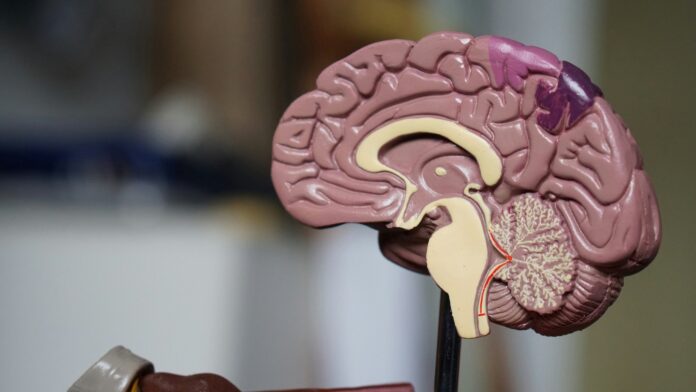 The FDA gave the green light to donanemab, the experimental treatment, which is proving effective in patients in early stage disease
The FDA gave the green light to donanemab, the experimental treatment, which is proving effective in patients in early stage disease
The United States Food and Drug Administration (FDA) unanimously approvedthat the benefits of donanemab, Eli Lilly's experimental Alzheimer's treatment, outweighed its risks, and agreed that trial data showed its effectiveness in patients with the early stage of the memory-destroying disease.
The development paves the way for a final FDA decision on the treatment, which was originally expected earlier this year before the agency called the meeting so its independent panel of experts could weigh in. all data.
“We are really pleased that the advisory panel recognized the strong positive benefit of donanemab,” said Dawn Brooks, head of drug development at Lilly after the experts voted for the initial approval. Now, with the panel's unanimous support, the company hopes the FDA will give full approval to the drug.
It was July 2023 when Eli Lilly showed that its experimental drug showed better results by treating Alzheimer's patients at an early stage, ideally before they show symptoms of this brain-destroying disease.
Specifically , as reported by US media:
“A US Food and Drug Administration advisory panel voted unanimously on Monday to recommend that the benefits of a new Alzheimer's drug outweigh its harms, which may include inflammation of the brain and bleeding.
Eli Lilly's donanemab slowed the decline of thinking skills in early-stage Alzheimer's patients: The company's data showed that patients who received donanemab had a 37 percent lower risk of disease progression over 18 months than patients who received a placebo .
Donanemab has been shown to slow the progression of memory and thinking problems by about a third, but that rate doubles to 60 percent if the drug is started when patients are only mildly impaired, according to a trial presented at the Association's International Congress Alzheimer's in Amsterdam. This new Lilly drug is a potential rival to Biogen's Eisai and Leqembi, which won US approval last July.”
“There's a huge unmet need here,” said Sarah Dolan, a consumer spokeswoman. at the panel, the New York Times reported. Donanemab works by targeting amyloid, a protein that can build up in patients' brains.
Two similar drugs have recently been approved to fight amyloid. Leqembi, made by Eisai and Biogen, was approved last year with modest risks and benefits similar to donanemab. Meanwhile, Aduhelm, also made by Biogen, was approved in 2021 but was discontinued because there was insufficient evidence that it helped patients.
Reaction to the vote was mixed. “A future with more approved treatments for Alzheimer's disease is a big step forward for people who are eligible for these drugs. Advances are being made in treatment,” Joanne Pike, president and CEO of the Alzheimer's Association, said in a statement.
“We now need more types of treatments, targeting a variety of aspects of the disease, with greater efficacy and safety. This will lead to possibilities for combination therapies that address the complexity of the disease,” Pike added.
But others were less enthusiastic
“The advisory committee meeting was very disappointing. The key issue was not the details of potential prescribing information for donanemab, but rather whether the drug should be approved in the first place,” said Dr. Robert Steinbrook, director of Public Citizen’s Health Research Group. “The FDA should never have approved the Alzheimer's drugs aducanumab [Aduhelm] and lecanemab [Leqembi]. “They should not make the same mistake a third time by approving donanemab.”
“All three drugs have the same problem: Their purported benefits in slowing the progression of Alzheimer's disease do not outweigh significant health risks, including inflammation and bleeding in the brain,” the nonprofit advocacy group said in a statement. consumers. Although Alzheimer's patients and their families are desperate for effective treatments, donanemab is not the answer and should not be approved.”
In trial data submitted by Lilly to the FDA, reductions in thinking were delayed by 4 1/2 to 7 1/2 months in those who received donanemab compared with those who received placebo.
On the other hand, three patients receiving donanemab died from brain inflammation or bleeding linked to the drug. Also discussed during the team meeting was the fact that study participants stopped taking the drug once their amyloid disappeared, the Times reported.
Lilly's decision to stop treating patients just a A brain scan showed their amyloid was gone was satisfying to some committee members because patients could avoid constant monthly infusions, the risks of treatment and the higher cost of care, the Times reported.
However, the committee had doubts about stopping treatments. Dr. Constantino Iadecola of Weill Cornell Medicine in New York noted that it was unclear how patients would be monitored after they stopped taking the drug.
“Follow-up will be necessary,” he told the Times. And “how soon will they need to intervene if signs of increased amyloid appear?” he added. Lilly scientists estimated that it would take almost four years for amyloid levels to rise above the threshold again.
source: In.gr




